At the time of its birth, the superhero genre was a charming, small industry that offered escape from an often cruel and unforgiving world, and gave its audience a glimpse of a place where truth and justice always prevailed. In today’s corporate ruled society, that simple charm is all but lost, with countless caped crusaders helming their own multimillion-dollar franchises often run by those who stand in stark contrast to the ideals of their titular heroes. This cynical underpinning of superheroes is at the heart of Amazon’s The Boys, which is precisely what makes it one of the most original, daring, and cynical takes on the genre in recent memory.

The Boys takes its viewers to a world where superheroes are real and revered by the public. The most revered of these heroes are a group known as The Seven, an ensemble of gifted individuals lead by Homelander, this world’s answer to Superman. The Public image of The Seven is one of nobility and justice. They proclaim to be the stewards of peace and prosperity all over the world. They’re also under the employment of Vought, a corporate monstrosity that exploits their talents in order to sell various products. Vought has made quite a business out of these superheroes, with clothing, food, energy drinks, and film and television devoted to them. This sheltered and privileged life has spoiled many of these superheroes, sometimes to dangerous levels.
For those who haven’t seen the show, be forewarned. This article may contain some spoilers and plot twists.
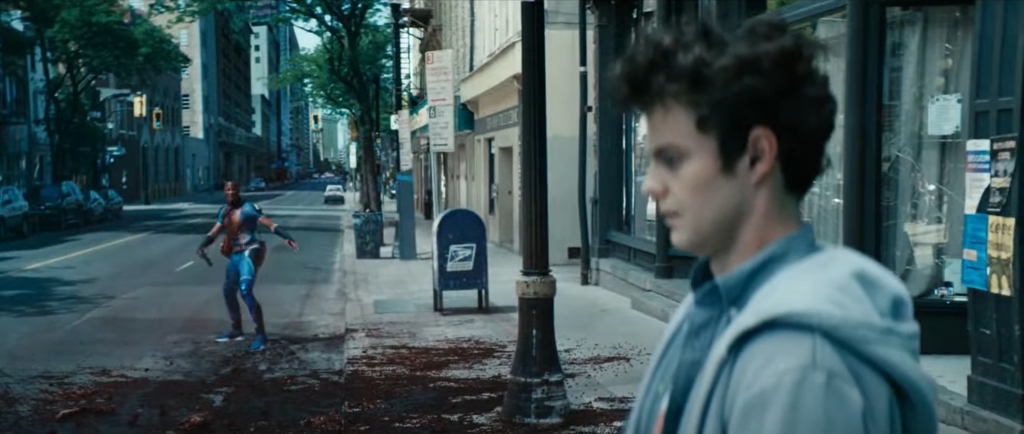
Vought’s superheroes use their privilege to escape consequences for their actions on a regular basis. It’s such privilege that actually jumpstarts the show. One of the Seven is A-Train, the fastest man alive and this world’s answer to the Flash. In one of the earliest episodes, A-Train is running so fast that he accidentally runs into and kills an innocent person. In the aftermath, he uses his power and influence to avoid any punishment for this crime, placing blame on the victim in the process. Such stories are all too common in the real world where film stars or sports icons cause someone’s death through their own misadventure, only to return to their high castles and leave everyone else to grieve. The sad truth is A-Train is protected by Vought because it’s a financially smart decision to make. In doing so, they undermine the very values they sell.

Public image vs. private image is a big part of how both Vought and the superheroes they sell are presented in The Boys. One of the funniest scenes in the first season involves Homelander filming a documentary about his childhood. In the documentary, he claims to have grown up on a farm with a loving family. This is of course completely false as Homelander was raised in a lab by doctors. His sweet, wise persona on camera is contrasted by his bickering with a crewmember about the placement of a prop. We all love our celebrities, and this show uses superheroes as a stand in for those celebrities. It takes away the exterior and shows them as flawed, troubled, and in Homelander’s case, insane.
When it comes to Vought’s public image, they’re every bit as untrustworthy as Homelander. Vought portrays themselves as stewards to superheroes and the ideals they uphold, but behind the scenes they are just another cold, calculating machine only interested in their bottom line. Vought is entirely aware of many of the things happening behind closed doors.
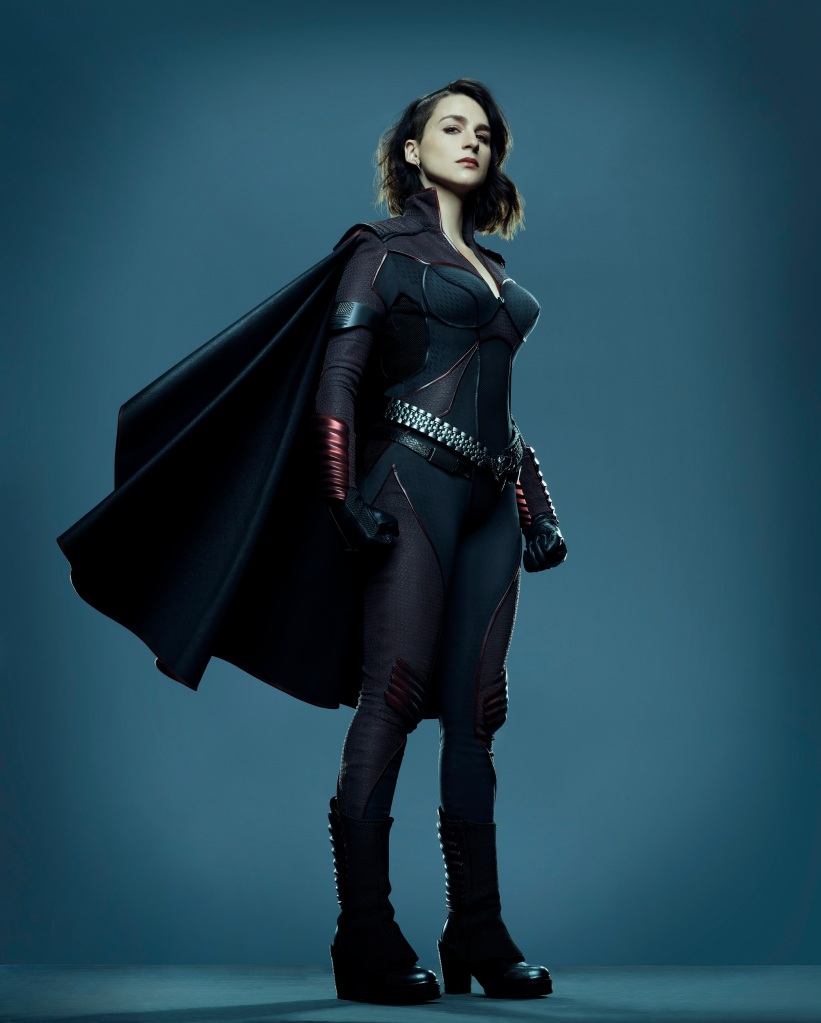
Harvey Weinstein’s predator behavior was a well-known secret in Hollywood, yet nobody did anything about it for years. The Boys lampoons this story with The Deep, a superhero based on Aquaman who repeatedly harasses and assaults women at Vought. Perhaps most gregarious of all is Vought’s catering to Stormfront in the second season, who turns out to be a Nazi from the 1940s. Stormfront serves as the main villain for the second season, with her newfound celebrity giving her free reign to spread her hateful message to untold numbers of people.
Vought is completely aware of Stormfront’s Nazi ties. This is made clear when Stan Edgar, the CEO of Vought, tells this to the head of a cult currently targeting Superheroes. Vought takes no meaningful action against Stormfront, giving her free reign to use the company’s resources for her own ends. They also do nothing to stop The Deep even though he’s been harassing and assaulting women for years. Only outside intervention is able to bring both characters down, and even then it only happens when bad PR starts to damage Vought’s profits. In the end, it all comes down to the bottom line.

Even when Vought takes up noble causes, they do so in such a way that’s very uncomfortable to say the least. One of the few morally sound characters on the show is Queen Maeve, a hero inspired by Wonder Woman who is also a closet lesbian. After she’s outed by Homelander, Vought uses the publicity to push products, having Queen Mauve appear in public service announcements and sell rainbow colored Pride Bars. It’s painfully clear that Queen Maeve would rather have her love life kept private, and is very uncomfortable with how Vought is exploiting her for the sake of their image. The cause is a good one, but even in a good cause, Maeve is still being victimized by Vought.
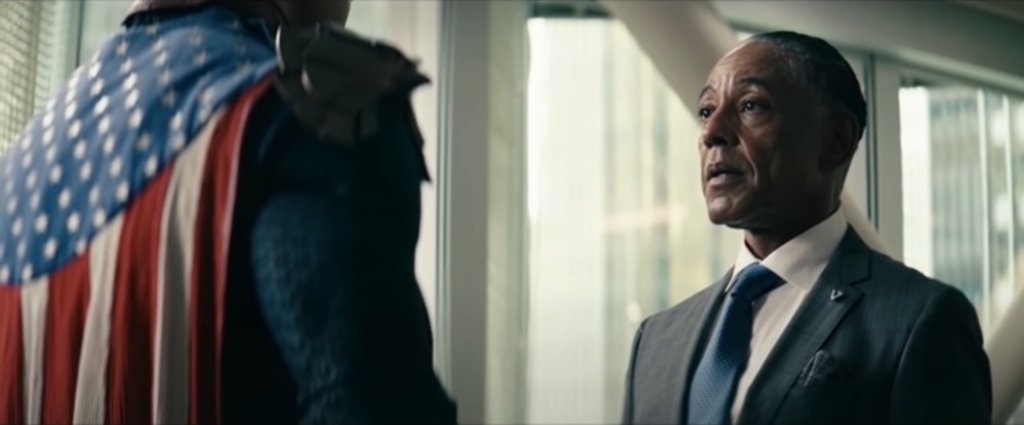
That Vought only uses Superheroes as a marketing tool is one of the show’s most clever aspects. This is shown during Homelander’s heated argument with Edgar. Unsatisfied with the direction the company is taking, Homelander threatens to leave Vought in an effort to strong arm Edgar into doing things his way. Edgar is unimpressed, and tells Homelander that “The point is you are under a misconception that we are a superhero company. We are not. ” He goes on to say that Compound V, a chemical agent used to make superheroes is the company’s most valuable asset.
Many so called heroic deeds in the show are in fact staged by Vought in order to further their sales of Compound V. This becomes a major plot point in the first season where Vought seeks to get a contract with the military, thereby allowing them to sell V and skyrocket their profits. In order to sell the idea, they send Homelander and Queen Maeve to rescue a highjacked plane. When this goes wrong, Homelander exploits the tragedy in order to pitch why superheroes and Vought should be involved in the armed forces, much to the joy of Vought and their bank accounts.
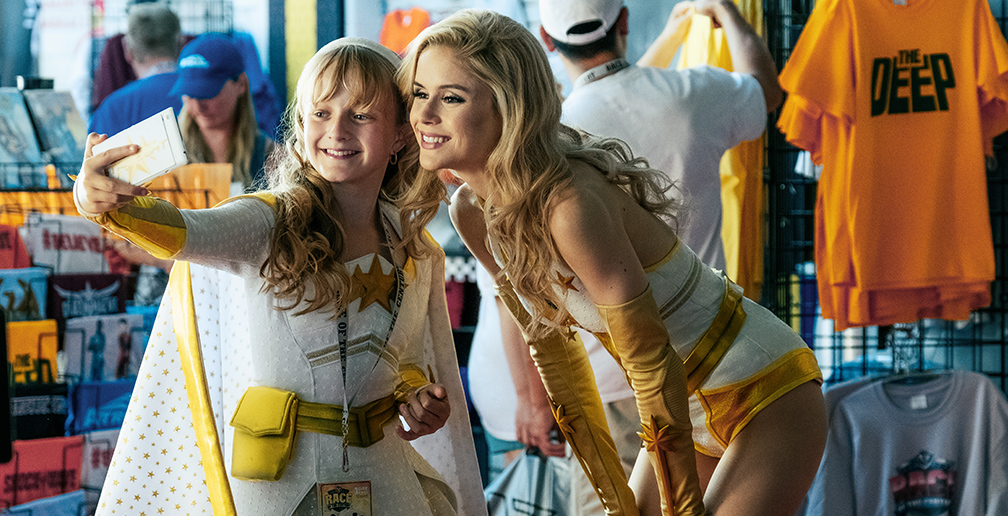
Vought is so focused on profit and public image that even saving people is criticized at times. Starlight, a naïve young superhero and the protégé of Queen Maeve, saves a woman from being raped shortly after her arrival at Vought. Vought in turn reacts in anger, claiming the incident was bad for publicity. At no point do they show any concern for the victim, and they only celebrate the incident after it goes viral and positively impacts their profits.
Vought is a powerful entity that grants an affluent lifestyle to all those who take part in it, but it comes at a heavy price. Being forced to partake in such a soul-less corporation takes a lot out of the soul from most of these heroes. Like Starlight, Queen Maeve began her life as an idealist, but is now a jaded, disillusioned shell of her former self who has lost the will to fight for what she believes in. By midpoint in season 2, Starlight is well on her way to adopting that same philosophy. One of her defining moments is a sullen lunch with her mother where she says ‘It’s all for the money.’
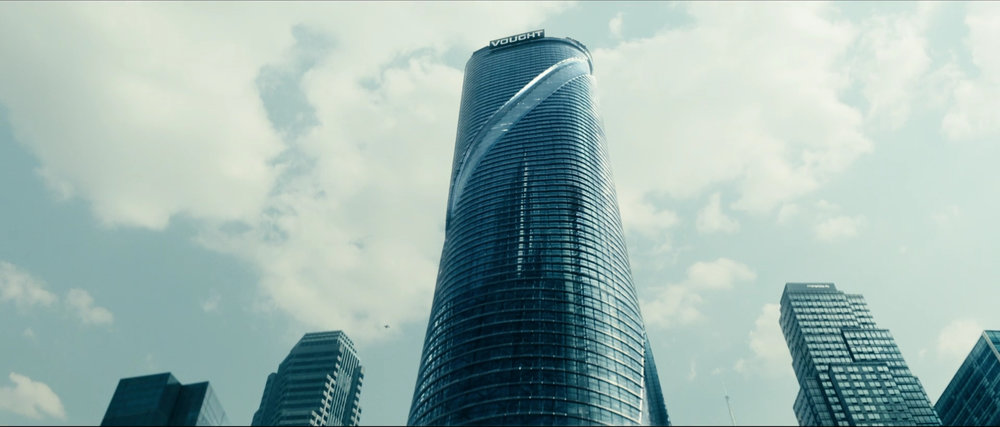
It’s very telling that when Homelander confronts Stan Edgar in the second season, Stan turns the tables on the world’s strongest man and is able to stare him down. The world of The Boys is a sinister, depressing place where superheroes are illusions and evil wears a cape and a smile. One of the most memorable aspects of the superhero genre are the villains. From Thanos to the Joker, every hero needs an adversary to overcome. There are individual villains in The Boys, but the one villain that enables them all isn’t a person or even a group of people. Vought itself is the villain. It is a corrupting force that fools a gullible public, and even superheroes are mere pawns in its quest to consume more and more wealth. Perhaps the most disquieting thing about it all is such villains are not confined only to the world of The Boys.
One could even argue that such a monster is what created The Boys.
Like this article? Check out these other similar pieces by some of our top contributors!
